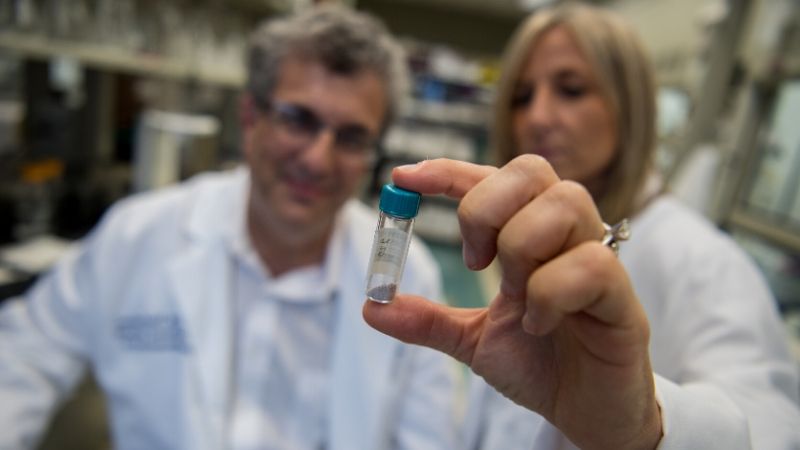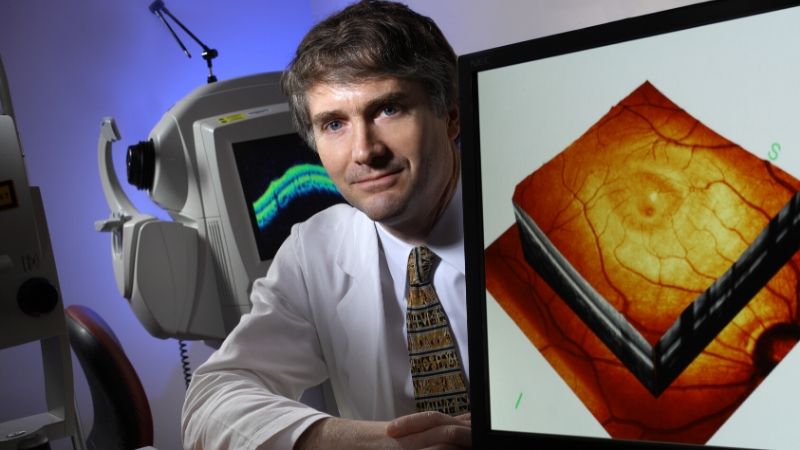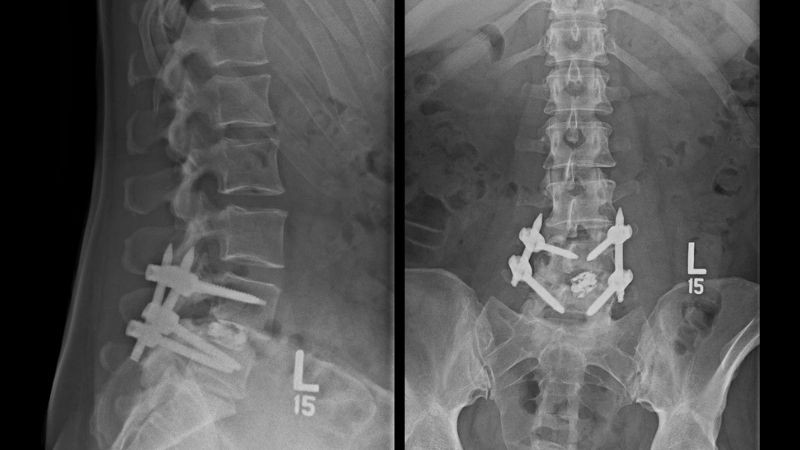About Us
InHealth is how we practice precision medicine at Johns Hopkins Medicine. Precision medicine uses the latest technology to measure disease characteristics so we can identify patterns in groups of patients. We can then develop tailored treatment plans for individuals. We can also use this information to create proactive treatment plans, getting ahead of health problems before they occur.
How We Practice Precision Medicine

This information is placed on our inHealth computing platform, the Precision Medicine Analytics Platform (PMAP). Answers to questions such as these can be used to estimate and balance the likely benefits and risks of treatments given a patient’s preferences and tolerances.
In addition to saving unnecessary expense treating people who will not respond, as part of Johns Hopkins inHealth, we are further studying what nonresponders will teach us about their disease so we can develop additional treatments that might work for more people.
Antony Rosen, Vice Dean for Research
News Releases
-
Wearable Activity Trackers Can Be Used to Determine Health Metrics That Could Support Clinical Care
Metrics also enabled researchers to group participants based on clinical parameters.
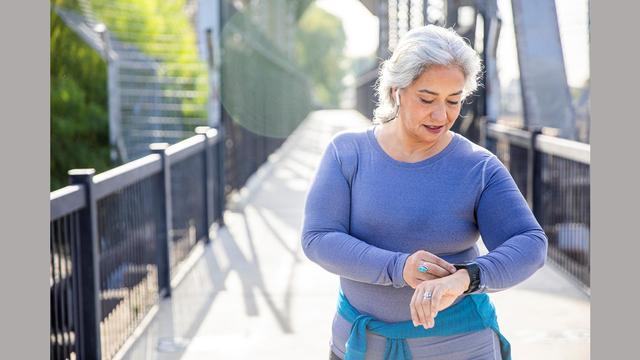
-
Johns Hopkins Medicine Announces Microsoft Azure Will Become Its Preferred Cloud Platform for Its inHealth Precision Medicine Initiative
Five-Year Agreement Will Support Johns Hopkins Medicine inHealth in Driving New Medical Discoveries to Improve Disease Management and Patient Care.

-
Study Shows Artificial Intelligence Can Detect Language Problems Tied to Liver Failure
Technology that lets humans communicate with machines adapts well to role as medical detective.
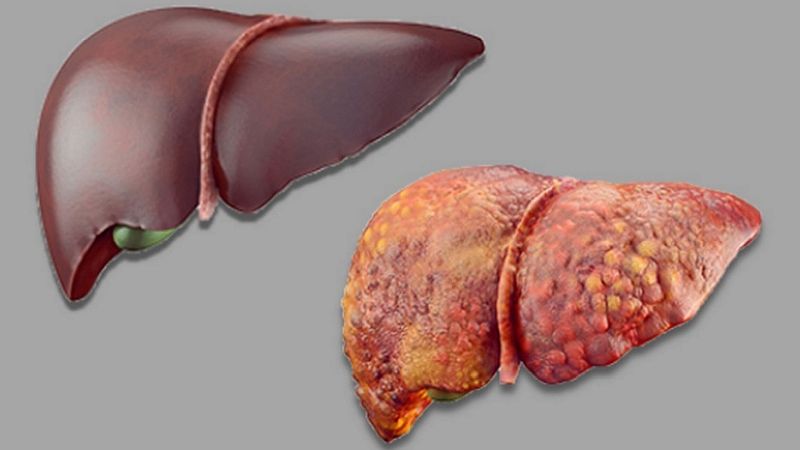
Johns Hopkins in the News
Past Events
-
Hybrid event on Tuesday, October 3rd, 2023
Virtual and in-person at Turner Conference Center. The symposium is designed to bring together thought leaders in precision medicine to facilitate collaboration and implementation of science best practices in the healthcare field. -
Download the opening remarks and panel slidedecks.
Speakers
Opening Remarks
Antony Rosen
Antony Rosen, M.B.Ch.B., M.S., is the Mary Betty Stevens Professor of Medicine, and professor of pathology and cell biology. He is the director of the Division of Rheumatology and the vice dean for research at the Johns Hopkins University School of Medicine, as well as the director of inHealth, Johns Hopkins’ program in precision medicine and individualized health. Dr. Rosen received his medical degree from the University of Cape Town in South Africa in 1984. After completing his internship in medicine and surgery, he pursued postdoctoral studies in immunology at the Rockefeller University in New York (1987–1990). Drawn by a desire for a deeper understanding of human inflammatory diseases, he returned to clinical medicine and was an Osler resident and rheumatology fellow at The Johns Hopkins Hospital (1990–1994). He subsequently joined the faculty at Johns Hopkins in 1995, and rose to the rank of professor in 2002. He has been director of the Division of Rheumatology since then, overseeing a substantial expansion of the division. His research focuses on autoimmunity in the rheumatic diseases, using subgroups of patients with distinct phenotypes, trajectories and specific autoimmune responses to define molecular mechanisms.Panelists and Moderator
Michael Miller
Michael I. Miller is the Bessie Darling Massey Professor and Director of Biomedical Engineering at Johns Hopkins University. He is also co-director of the Kavli Neuroscience Discovery Institute.
As a biomedical engineer who specializes in data science, Dr. Miller is pioneering cutting-edge technologies in computational medicine to understand and diagnose neurodegenerative diseases. His research focuses on the functional and structural characteristics of the human brain in health and disease, including Huntington’s disease, Alzheimer’s disease, dementia, bipolar disorder, schizophrenia, and epilepsy. By developing new tools to analyze patient brain scans, derived from advanced medical imaging technologies, Dr. Miller aims to predict the risk of developing neurological disorders years before the onset of clinical symptoms. His lab is currently devising cloud-based methods to build and share libraries of brain images—and the algorithms used to understand them—associated with neuropsychiatric illness. Dr. Miller’s research is highly translational, and he has co-founded four start-up companies in the past decade.Hadi Kharrazi
Dr. Kharrazi is an Associate Professor of Health Policy and Management at the Johns Hopkins School of Public Health (JHSPH), with a joint appointment in Biomedical Informatics and Data Science at the Johns Hopkins School of Medicine (JHSOM). He is the co-director of the JHSPH Center for Population Health ITHe is the co-director of the JHSPH Center for Population Health IT (CPHIT) and is a core member of the Johns Hopkins ACG system’s R&D team. Johns Hopkins ACG system’s R&D team. He is also the director of the DrPH Informatics track at JHSPH and the director of Health Informatics PhD program at JHSOM. He is a standing member for two NIH study sections and serves as the associate and deputy editor for JAMIA Open and Medical Care journals. His research has been funded by various federal agencies and focuses on population health analytics, predictive models, and risk stratification topics. For more information, please visit http://hkharrazi.com.Casey Overby Taylor
Dr. Casey Overby Taylor is Associate Professor of Medicine-General Internal Medicine and Biomedical Engineering in Johns Hopkins School of Medicine (SoM), and a core faculty member in the Institute for Computational Medicine. She has an affiliation with the Biomedical Informatics Data Science (BIDS) Section in the Division of General Internal Medicine, and joint appointments in the Department of Health Policy and Management in the Johns Hopkins Bloomberg School of Public Health, and the Computer Science Department in the Johns Hopkins Whiting School of Engineering. Her research brings together biomedical informatics, biomedical data science, and comparative effectiveness research methods to study more effective ways to engage patients and to deliver clinical recommendations to healthcare providers. Coinciding with her joint appointment in Medicine and Biomedical Engineering, in 2020 she established the Translational Informatics Research and Innovation (or TIRI) Lab with the vision to create solutions to address challenges to translating biomedical data science-informed guidance into use to improve the health of individuals, especially for underserved and vulnerable populations. Dr. Taylor has previously received a Johns Hopkins Malone Center for Engineering in Healthcare Fellowship in 2018 and Microsoft Digital Investigator Fellowship Award in 2020. In 2020, she was also awarded a 5-year NIH R35 Genomic Innovator Award.Ryan Roemmich
Ryan Roemmich a human movement scientist interested in walking and rehabilitation of persons with neurologic damage or disorders. My background spans engineering, clinical gait analysis, and neuroscience. His research focuses on combining these disciplines to understand how the nervous system controls locomotion and how we can improve walking in persons with gait dysfunction. Ryan uses many techniques to study human movement, including three-dimensional motion capture, pose estimation electromyography, interactive feedback, musculoskeletal modeling, and clinical examination. Interdisciplinary collaboration is a strong emphasis of his work – he’s published with academic and clinical faculty in engineering, kinesiology, physiology, psychology, neurology, neuroscience, neurosurgery, physical therapy, and language sciences. Long-term research goals aim to develop innovative, effective walking treatments for persons with neurologic damage or disease. His team’s work has been funded by the NIH, the American Heart Association, the American Parkinson Disease Association, the Association of Academic Physiatrists, and pilot project awards through Stanford University.Suma Subbarao
Suma Subbarao has a Master’s degree in Computer Science and Software Engineering from Johns Hopkins University and has been working at the Johns Hopkins Applied Physics Laboratory for the past 16 years. Prior to APL, Suma worked as a consultant to Lockheed Martin and worked at the State of Maryland’s Department of Health and Mental Hygiene to help redesign and rearchitect the state’s WIC (Women Infants Children) program.
At APL, Suma has worked in a variety of roles for various sponsors and mission areas. She worked as a software engineer for the electronic syndromic surveillance system ESSENCE, as an android mobile engineer and lead to build a tactical sampling app for the detection of biological and chemical releases, a project manager to help build a global bio surveillance portal for the force, and over the last couple years as a project manager for PMAP.
In addition to her technical responsibilities, Suma is also an Assistant Group Supervisor for the Health and Human Machine Systems group at the Asymmetric Operations Sector of APL. She helps manage a diverse team of systems engineers, data scientists, cognitive and behavioral specialists working on a variety of National Health related projects including the COVID response, medical preparedness of the force, as well as projects with DHA, CDC, and FDA.Moderator
Lori Vanscoy
Dr. Lori Vanscoy is an Assistant Professor of Pediatrics and the Co-Director of the Johns Hopkins Cystic Fibrosis Precision Medicine Center of Excellence. Dr. Vanscoy graduated from the United States Naval Academy with a degree in Systems Engineering and received her medical degree from Duke University School of Medicine. She completed her pediatric residency at the Naval Medical Center San Diego and pediatric pulmonology fellowship at Johns Hopkins, after which she returned to active duty service as a physician in the US Navy. Highlights of her 20-year Navy career included directing the largest CF center in the military at the Naval Medical Center Portsmouth, serving as medical director for all DOD CF centers, and deploying as a member of the medical staff aboard the USNS Comfort to Central and South America for the humanitarian assistance mission Continuing Promise. After her retirement from the Navy, Dr. Vanscoy returned to Johns Hopkins in 2019 to pursue her research interest of using machine learning strategies to inform truly individualized treatment decisions in CF care. She assumed the role of Medical Director for the InHealth program in 2021. -
Watch the recording from speakers Brant Chee and Kerry Smith. Use passcode zzW39Ay@ to access the webinar.
Presentation slides are available for download.
Speakers
Kerry Smith
Kerry Smith is a CCDA navigator, with over 20 years of experience helping scientists and clinicians integrate technology tools into their workflow. Kerry spent 7 years working at Wilmer Eye Institute as an Epic builder and CCDA adjunct and recently earned a Masters in Applied Health Science Informatics from the JH BIDS program. In December of 2021 she joined the ICTR/Precision Medicine team, where her knowledge of clinical workflow and Epic data structures assists her in streamlining projection processes, gathering customer requirements, and working with various technical teams to improve customer utilization of precision medicine resources.Brant Chee
JHU Applied Physics Lab
Instructor
BIDS
[email protected] -
Watch the recording from speakers Thomas Grader Beck, Scott Carey and Ara Wally. Use passcode @aA5dAD0 to access the webinar.
Presentations are available for Smartforms, REDCap, and Open Specimen data capture presentations.
Speakers
Scott M. Carey
Scott Carey (Sr. Systems Engineer, Institute for Clinical and Translation Research at Johns Hopkins University – School of Medicine) has worked in the clinical research informatics field since 1993, working initially with trauma/EMS registry software. After spending 5-years as the systems manager for the Maryland Cancer Registry, he worked closely with the AHA on a project to build and manage the National Registry of CPR (in-hospital resuscitation). Scott has been supporting Johns Hopkins clinical research since 2007, when he was hired to support the JH Bayview GCRC (General Clinical Research Center) and was eventually folded into the ICTR Informatics Core. Since bringing REDCap to the School of Medicine in 2010, Scott has worked to extend the reach of REDCap throughout the JH research community and has pursued the integration of REDCap with systems such as EPIC.He has worked in the clinical research informatics field since 1993, working initially with trauma/EMS registry software. After spending 5-years as the systems manager for the Maryland Cancer Registry, he worked closely with the AHA on a project to build and manage the National Registry of CPR (in-hospital resuscitation). Scott has been supporting Johns Hopkins clinical research since 2007, when he was hired to support the JH Bayview GCRC (General Clinical Research Center) and was eventually folded into the ICTR Informatics Core. Since bringing REDCap to the School of Medicine in 2010, Scott has worked to extend the reach of REDCap throughout the JH research community and has pursued the integration of REDCap with systems such as EPIC.
Thomas Grader Beck
Dr. Thomas Grader-Beck, Assistant Professor of Medicine, Division of Rheumatology, completed his Rheumatology fellowship training at Johns Hopkins University School of Medicine in 2003. He has a special interest in clinical informatics and how to optimize electronic health record systems to better understand granular patient phenotypes in Rheumatic diseases and beyond. In 2013, he completed a post-baccalaureate in Clinical Informatics and in 2014 became a certified Epic Physician builder. In 2018, he helped to establish the Program To Accelerate Clinical Research using Epic (PACE) under the direction of Diana Gumas and Dr. Dan Ford and has been the PACE Clinical Director since then. In 2021, he obtained board certification in Clinical Informatics. He is a member of several health IT related committees and workgroups, including the R cubed committee, the Epic research taskforce and the Epic Physician Builder workgroup. On a national level, he is a member of the Registries and Health IT committee of the American College of Rheumatology and he is the Epic Steering Board Director for Rheumatology.Over the past 9 years, he has advised many clinical research groups across the institution on how to optimize Epic for clinical research, including many projects with the Precision Medicine Centers of Excellence. He has designed, built and implemented over two hundred Epic enhancements for clinical research and clinical care and is developing innovative ways in how to deliver individualized patient care (Precision Medicine).
His clinical interest focuses on the diagnosis and therapy of patients with Sjogren’s disease and he has used his clinical informatics background and knowledge of the Epic EHR system to help establish a comprehensive longitudinal cohort of almost 1500 patients. He has been the principal investigator for several multi-national clinical trials in Sjogren’s disease.
Ara Wally
Ara joined Hopkins in 2019 working for Dr. Nadia Hansel as a research assistant. She is currently a JHBSPH Biochemistry and Molecular Biology graduate student and works under Dr. Ramana Sidhaye as a Sr. Laboratory coordinator for the COPD and Asthma PMCOE, PACT, and CIP biorepositories. -
Watch the recording from speakers Khyzer Aziz, Paul Nagy and Michael Cook. Use passcode &2ic+S7M to access the webinar.
Presentation slides are available for download.
Speakers
Khyzer Aziz
Dr. Khyzer Aziz’s research interests are utilizing complex information found in the electronic medical record and national registries/databases to provide clear, cohesive, and concise information for patients, families, and clinicians that can be used for clinical decision-making and neonatal precision medicine. With his mentorship team, he is developing and validating neonatal specific severity of illness metrics for the neonatal population – the neonatal sequential organ failure assessment (nSOFA) score and the vasoactive-inotropic score (VIS) – over the last year, he has published this work in high impact, peer reviewed journals. He is also the Director and Faculty/Scientific lead of the NICU Precision Medicine Center of Excellence (PMCOE) initiative at Johns Hopkins along with Dr. Frances Northington. His short-term goal is to develop and publish unbiased studies concerning major health outcomes for NICU patients using internal institutional databases and national data registries via neonatal specific severity of illness metrics (nSOFA and VIS). His hope is that these studies will provide the framework towards more effective pre- and postnatal counseling, quality improvement initiatives, and help build predictive models for individual disease processes. In doing this work, his ultimate goal is to build predictive models that can aid in producing the best outcomes for patients in the most cost-effective manner and build a path towards neonatal precision medicine.Paul Nagy
Paul Nagy, PhD, FSIIM is Associate Professor in the Johns Hopkins University School of Medicine Department of Radiology with a joint appointments in Medicine and the Department of Biomedical Engineering in the School of Engineering. He received his BS from Carnegie Mellon University and his PhD at the Medical College of Wisconsin. His research focus is developing biomarkers from medical imaging to enable real world reproducible evidence from observational research.He is the director of education for the training programs in the Biomedical Informatics and Data Science section of the Department of Medicine. He leads the Observational Health and Data Science Informatics (OHDSI) efforts at Johns Hopkins as part of the Precision Medicine initiative.
He serves as the deputy director of the Johns Hopkins Medicine Technology Innovation Center (TIC) with the goal of partnering with clinical inventors to create novel patient centric IT solutions. This team of 50 designers, developers, and data scientists work with inventors to build, deploy, and evaluate digital health solutions within the Johns Hopkins Medical System. Learn more: https://tic.jh.edu/about/ and https://www.hopkinsmedicine.org/profiles/details/paul-nagyhttps://tic.jh.edu/about/ and https://www.hopkinsmedicine.org/profiles/details/paul-nagy
Michael Cook
Michael Cook joined Hopkins full-time in 2020. He currently works in the CCDA as a Senior Programmer Analyst. He provisions clinical data for research teams on the PMAP platform. He is also involved in the OMOP effort and assists in documenting and delivering OMOP data. -
View presentation and demo slide decks from presenters John Scott and Aparna Natarajan.
Speakers
John Scott
John Scott is an IT Manager at the Technology Innovation Center (TIC). He currently leads a team working on the Precision Medicine Platform (PMAP). His team develops and supports crunchr, a research compute platform; the Analytics Hub, a portal for analytic prototypes; the OHDSI suite, open source tools to explore and analyze OMOP repositories; and Patient Insight, a longitudinal clinical decision support dashboard. He joined Johns Hopkins in 2011 as a Sr. Software Engineer. Before joining the PMAP team he worked on a wide variety of projects including the my.jh portal, CORUS and the TIC authentication/authorization platform (VEGAS).Aparna Natarjan
Aparna Natarjan recently joined the Precision Medicine team with a focus on Patient Insight builds. She has joined the team with more than 10 years of experience working on enterprise technology solutions at diverse industries spanning from banking to healthcare. In her current role as Product Manager she works closely with research teams to develop technology solutions that enable the discovery of new patient subgroups. Aparna also works on the development of clinical decision support tools to help clinicians understand disease trajectories of their patients and gain new insights into their clinical practice. -
Please review our PMCOE office descriptions and office hours if you are interested in reaching out to any of our offices.


